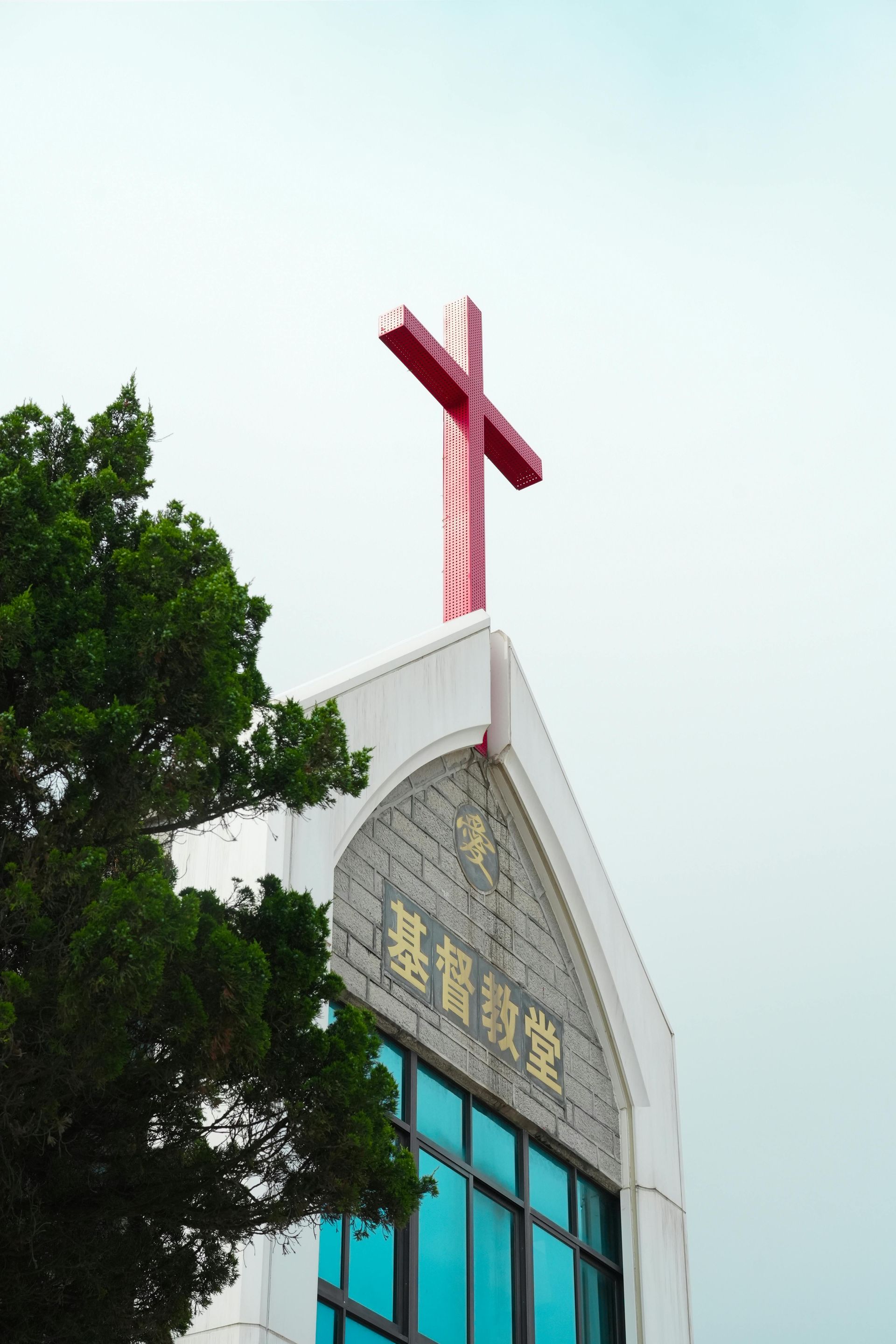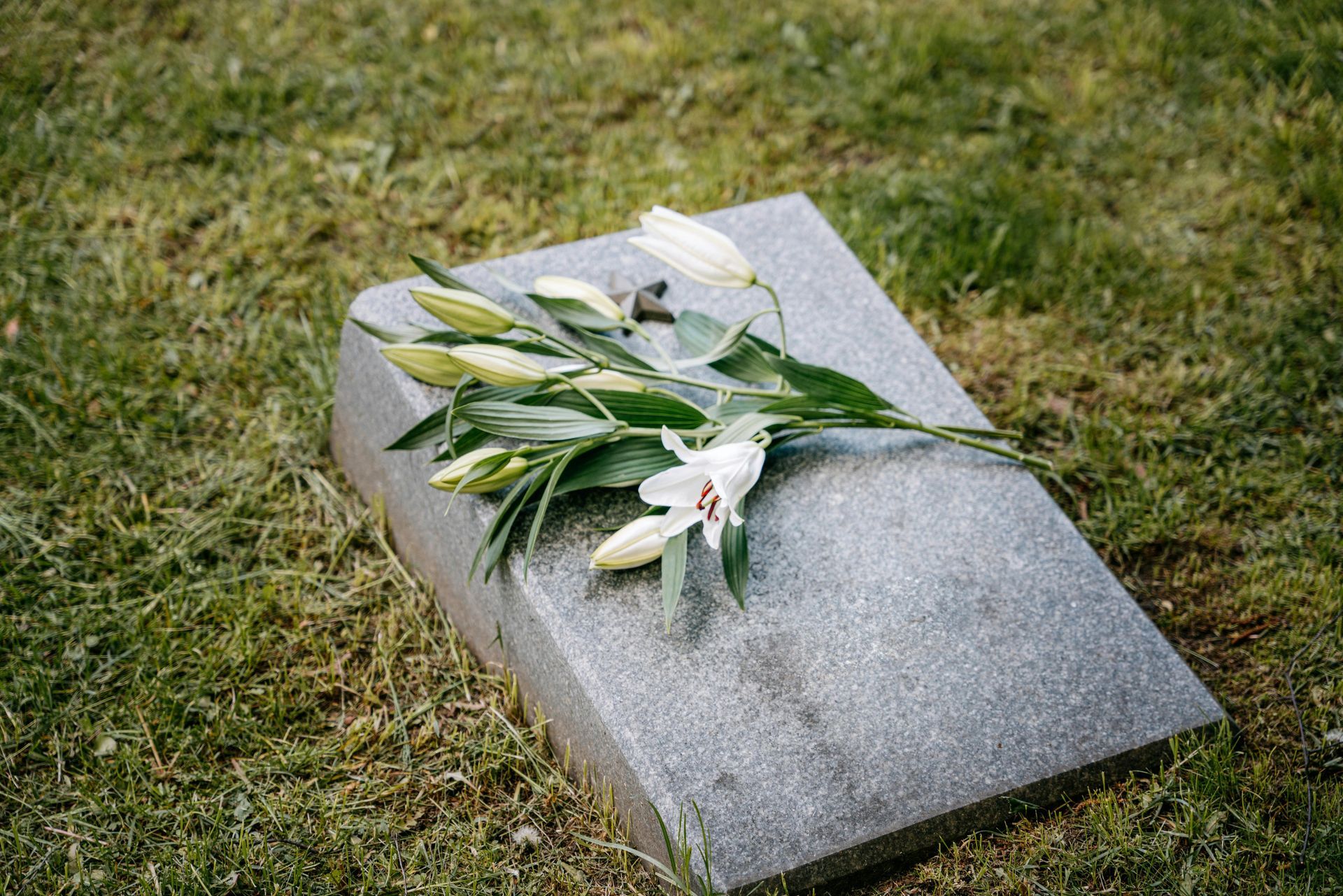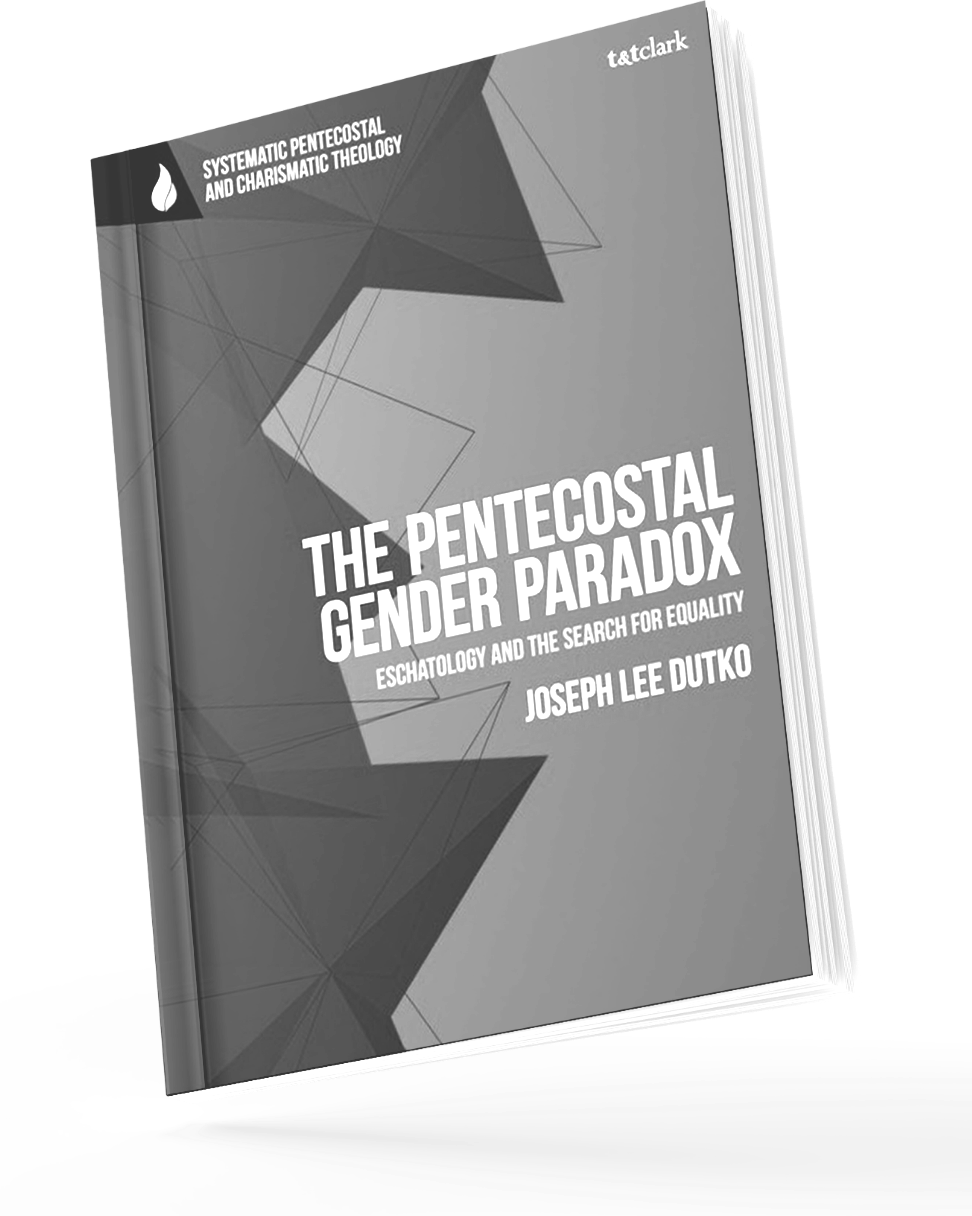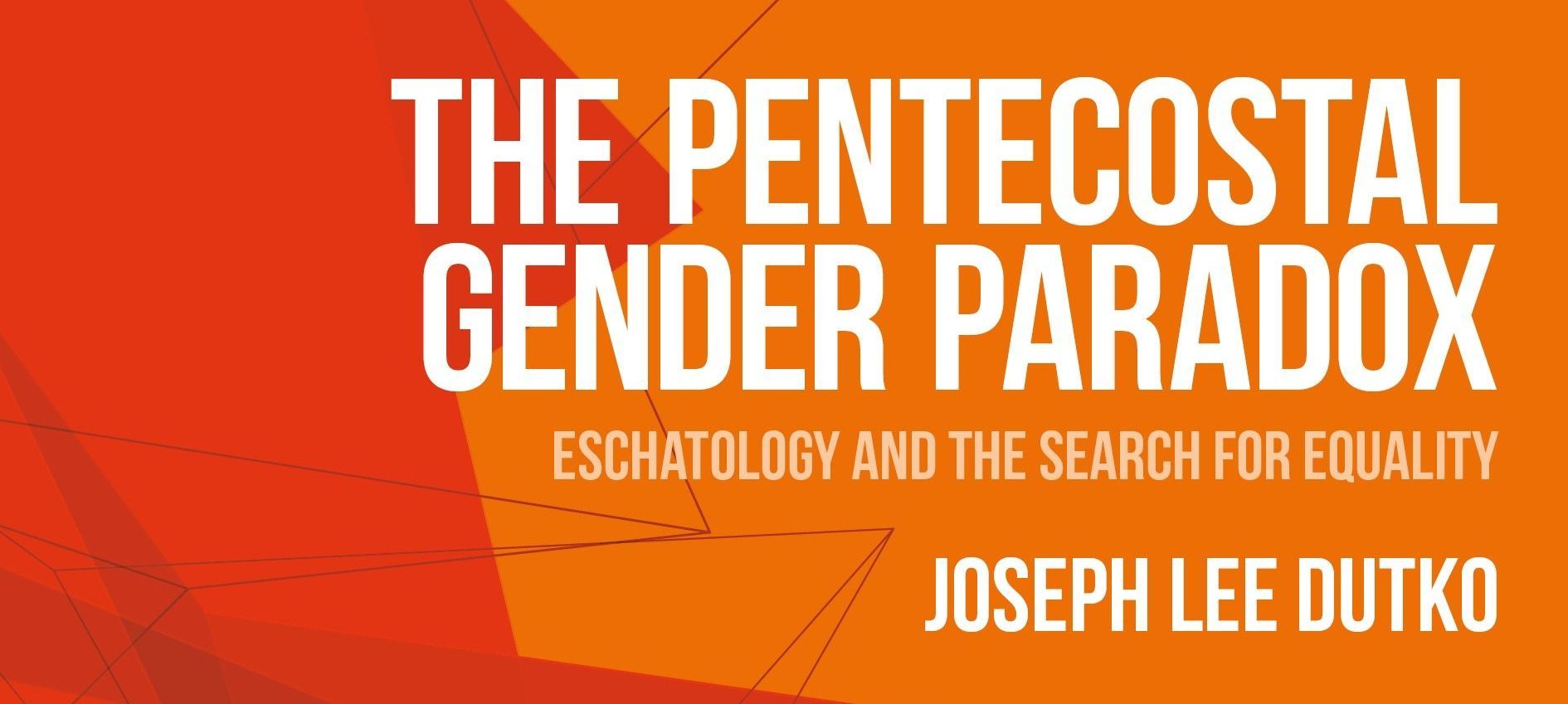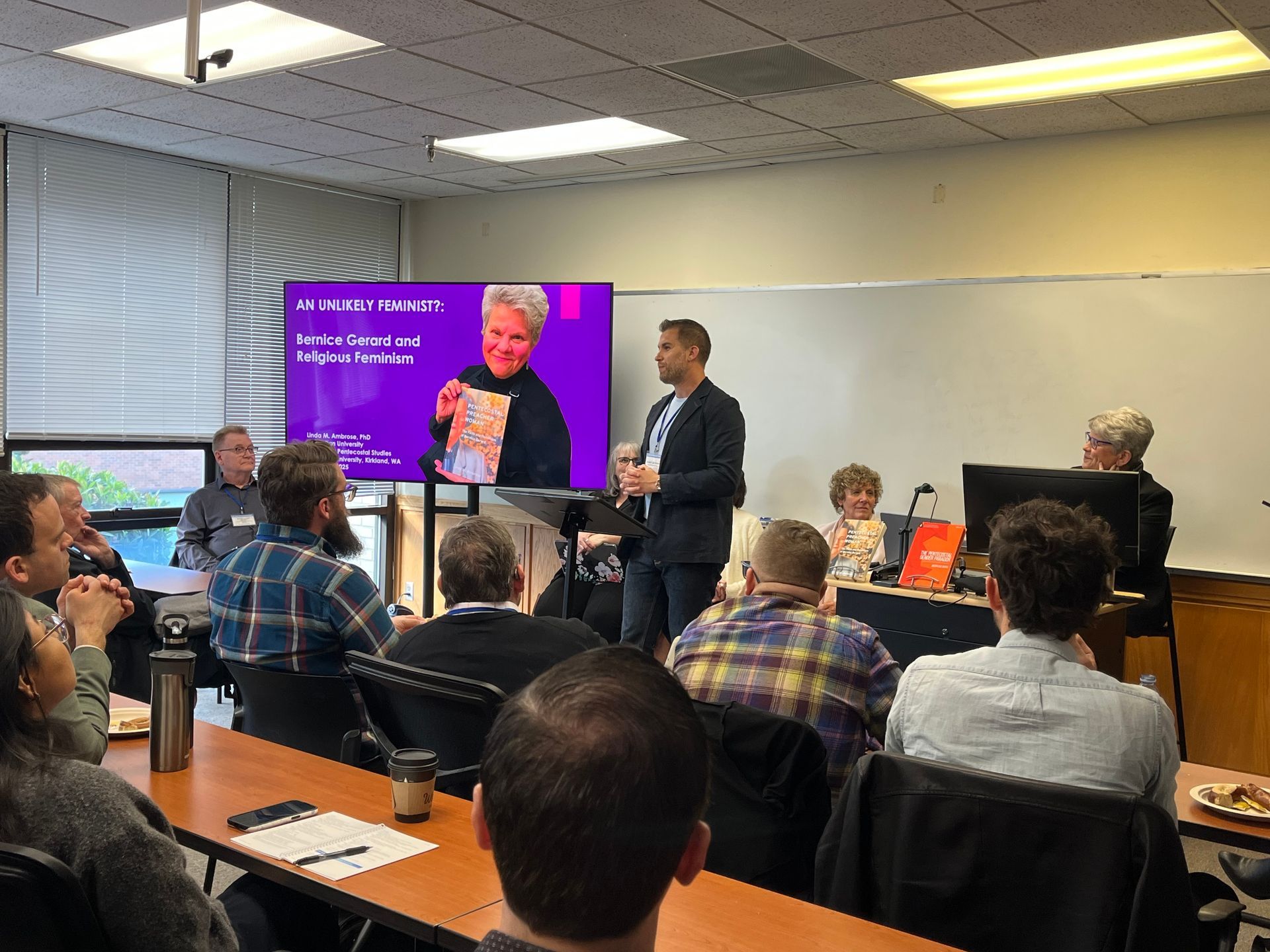Excerpt from Ch. 1: "Eschatology: Enemy of Equality?"
An Excerpt from Chapter 1
Over the next few weeks I'll be releasing short excerpts from each chapter of The Pentecostal Gender Paradox to give you a feel for the work.
Remember you can read the entire Introduction here.
Want to purchase? Info and discounts HERE.
Excerpt from Chapter 1:
"Eschatology: Enemy of Equality"
Note: footnotes not included in excerpt
Pages 34-35:
The topography of literature begins with the antagonistic view because it presents the most significant challenge facing an eschatological argument for women’s equality. It also is likely the most dominant view within feminist theology due to the pioneering work of Rosemary Radford Ruether in feminist systematic theology. The antagonistic view treats any traditional eschatology that looks to a future existence as incompatible with and dialectically opposed to present egalitarian ideals, arguing that eschatology suppresses the message of equality. The antagonistic view proactively seeks to expose and denounce eschatology as a threat and distraction to egalitarian goals and therefore attempts to remove it from any theology that promotes the equality of women.
The history of eschatology being employed to support the oppression of women dates back to at least the second century and the Gospel of Thomas, which advises that
“every woman who will make herself male will enter the kingdom of heaven."
This eschatological understanding that women must transcend or overcome their femaleness to become spiritually fit for the afterlife is popular in early mystic writings and among some eschatologically driven modern mystical groups. Several orthodox church fathers also utilized eschatology as a way to dismiss the equal status of women. Fourth-century church fathers Augustine of Hippo and Gregory of Nyssa were some of the first to propose an eschatologically oriented understanding of gender, proposing equality for women in heaven only through accepting their subordination on earth. This history of eschatology’s relationship to gender, albeit brief here, has caused many modern feminist theologians, most notably Ruether, to hold an antagonistic view toward eschatology’s relationship with women’s equality.
In her widely cited book Sexism and God-Talk: Toward a Feminist Theology, first published in 1983, Ruether makes the first full-scale attempt at a feminist systematic theology. This work became the foundation that all future feminist theologies built on and a standard work that any Christian feminist argument must still engage. It is also the first feminist work to write explicitly on Christian eschatology. Because of that, what she says about eschatology—and the antagonistic position her work takes—matters greatly and has been influential in how feminist theologians have approached eschatology, hindering its use as a viable approach to the gender question.
..........................................................................
Page 49-50:
Cheryl Bridges Johns is one of the most prolific and consistent voices on women’s equality in Pentecostalism. One of her most influential articles marks the first Pentecostal attempt to make eschatology central in the quest for the full liberation and participation of women in church life. In “Pentecostal Spirituality and the Conscientization of Women,” Johns, heavily influenced by Moltmann as well as Walter Brueggemann’s prophetic imagination, argues that our understanding of the reality of the future is the template we should use to live now through the power of the Holy Spirit. As this happens, we are “actualizing” God’s future in the historical present which leads to the conscientization of women and the ability to live out their eschatological-ontological vocations now. Johns seeks to offer eschatologically based “tangible signs” and “symbols of hope” for this conscientization, “which announce, in the present, God’s future for women and men.” In order to do this, she looks at biblical precedents and historical antecedents for “liberating memories” of our “unattained future.”
Some of Johns’s approach to these eschatological symbols is discussed more fully in later chapters of my work, but important here is Johns’s solution for the realization of conscientization among women, namely, to read the Bible eschatologically and recapture the eschatological urgency of early Pentecostalism.
She draws a connection—one that is usually overlooked—between the waning of women in ministry with the waning of the eschatological edge of early Pentecostalism.
She closes by claiming “it is the task of pentecostals to interpret our present in light of God’s future” and that Pentecostal spirituality “marked by an eschatological vision” is what will lead to the present experience of women’s equality through what Johns calls conscientization. Although this article is by her own admission brief, it has opened the door for a more in-depth look at an eschatological perspective on gender in Pentecostalism, a door nudged open further twenty years later by Lisa P. Stephenson.
..........................................................................
Page 53:
We can conclude there is no work, Pentecostal or otherwise, that is entirely dedicated to the relationship of gender to eschatology (or vice versa) and that follows an eschatological framework consistently in a way that resolves the complexities of the gender question. The consequence of the current feminist antagonism or ambivalence toward eschatology is it implies a choice: one must choose between participation in the this-worldly feminist quest for equality or the otherworldly male-driven eschatological imagination, for they cannot work together. Some antagonist perspectives even go out of their way to criticize specifically Pentecostal eschatology as part of the problem. All these works determine that a robust eschatological hope cannot adequately address the varied present-day concerns of women in the church nor act as an authoritative method for solving a problem such as the Pentecostal gender paradox. What the remaining chapters argue is that Pentecostal eschatology surprisingly emerges out of this mostly antagonistic history as a valuable dialogue partner in the quest to implement egalitarian ideals in the church. An eschatological resolving of the Pentecostal gender problem may be the authoritative and authentically Pentecostal method needed to finally end the gender debate.
NEWSLETTER SIGNUP (blog post layout)
ABOUT JOSEPH
Pastor, Author, and sometimes pretends to be a Scholar
Joseph (PhD, University of Birmingham) is the author of The Pentecostal Gender Paradox: Eschatology and the Search for Equality.
Since 2015, he and his wife have together pastored Oceanside Community Church on Vancouver Island, where they live with their four children.

